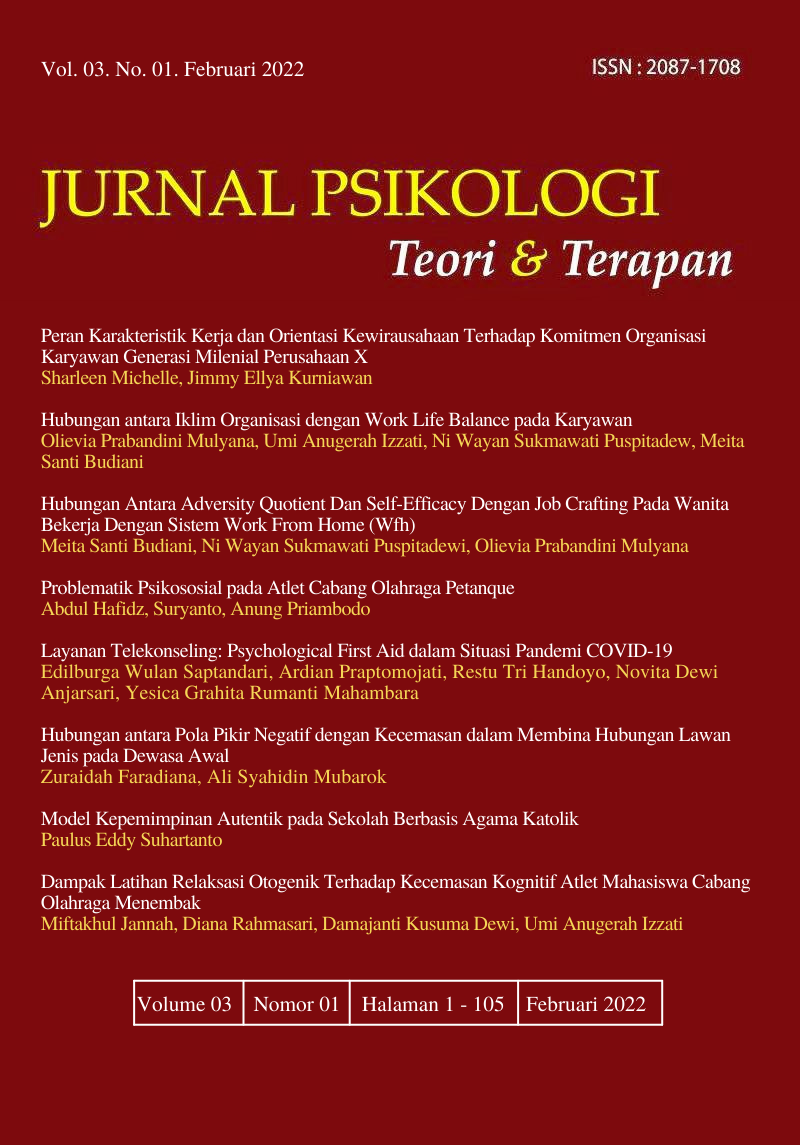Model Kepemimpinan Autentik pada Sekolah Berbasis Agama Katolik
DOI:
https://doi.org/10.26740/jptt.v13n1.p82-93Keywords:
kepemimpinan autentik, self knowledge, self consistency, psychological capitalAbstract
Authentic leadership research related to antecedents and consequences is still limited,especially with regard to antecedents and consequences. Several studies show that
the role of psychological capital, self knowledge and self consistency has not been consistent.
Likewise, related to organizational commitment as a consequence of authentic leadership.
This study aims to examine the antecedent model and consequences
of authentic leadership in Catholicism-based schools. Authentic leadership antecedent test
involves those consisting of self knowledge, self consistency and psychological capital
as antecedents to authentic leadership. Consequence testing involves organizational commitment.
The results show that psychological capital has a greater correlation than self consistency
and self knowledge. The implications of antecedent roles for authentic leadership
and affective commitment need to be considered in the development of authentic leadership.
References
Avolio, B. J. (2005). Leadership development in balance: Made/born. Mahwah, NJ Lawrence Earlbaum AssociatesAvolio, B. J., & Gardner, W. L. (2005). Authentic leadership development: Getting to the root of positive forms of leadership. The Leadership Quarterly, 16(3), 315-338.
Avolio, B. J., Gardner, W. L., Walumbwa, F. O., Luthans, F., & May, D. R. (2004). Unlocking the mask: a look at the process by which authentic leaders impact follower attitudes and behaviors. The Leadership Quarterly, 15(6), 801-823.
Downloads
Published
How to Cite
Issue
Section
License

This work is licensed under a Creative Commons Attribution-NonCommercial 4.0 International License.
Authors who publish in this journal agree to the following terms:
Copyright in any article is held by the author.
The author grants the journal, publication rights with the work simultaneously licensed under a Creative Commons Attribution License that allows others to share the work with an acknowledgment of the work's authorship and initial publication in this journal.
Authors may enter into separate, additional contractual arrangements for the non-exclusive distribution of the journal's published version of the work (e.g., posting it to an institutional repository or publishing it in a book), with an acknowledgment of its initial publication in this journal.
Authors are permitted and encouraged to post their work online (e.g., in an institutional repository or on their website) prior to and during the submission process, as this can lead to productive exchanges, as well as earlier and greater citation of published work.
 Abstract views: 321
,
Abstract views: 321
, PDF Downloads: 410
PDF Downloads: 410


















